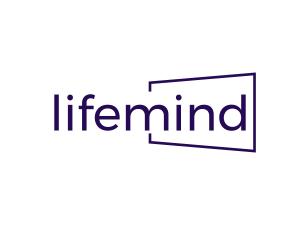'Neutral Marketing Is a Myth': Author and Startup Founder Draws Industry Attention
Chris Peterson’s podcast tour is reshaping how marketers think about values, consumer alignment, and the myth of neutrality in brand strategy.
SAN FRANCISCO, CA, UNITED STATES, July 16, 2025 /EINPresswire.com/ -- In an era where many brands aim to stay culturally neutral, author and startup founder Chris Peterson is gaining momentum by making a provocative claim: neutrality in marketing is an illusion—and clinging to it may be holding companies back.
Over the past three months, Peterson has appeared on more than 20 marketing and leadership podcasts—including RETAIL CHECKS AND BALANCES, SALESPOP!, MARKETING X ANALYTICS, and THE RETAIL INFLUENCER—sharing insights that challenge long-held assumptions about branding, personalization, and loyalty. His central insight: brands communicate values all the time, intentionally or not. "Every brand signals values—whether they intend to or not,” Peterson explains. “The question is whether those values create momentum or resistance with your customers."
RETHINKING CUSTOMER ALIGNMENT
Peterson’s argument—that values are always at play in consumer decision-making—is gaining traction among strategists tasked with unlocking growth in an increasingly fragmented market. His approach reframes values-based marketing not as a political stance, but as a path to deeper resonance and differentiation.
This perspective aligns with broader industry trends. According to McKinsey’s State of the Consumer 2025 report, consumers are no longer making decisions based solely on price or convenience. Increasingly, they’re choosing brands that reflect their personal priorities—such as identity, sustainability, and emotional alignment. This shift is forcing marketers to reexamine segmentation models and redefine what “fit” really means.
Lightspeed Commerce has also observed this shift, coining the term “valuespending” to describe how customers are “aligning their spending with their values,” and highlighting that “brand authenticity and shared beliefs now matter as much as product features or price.” This evolution is reshaping the way brands approach customer connection and loyalty.
His ideas are also resonating with industry leaders. Adrian Tennant, host of the IN CLEAR FOCUS podcast, called Peterson’s framework “a groundbreaking marketing resource,” noting:
“Peterson’s analysis of 27 purchase values provides actionable frameworks for any marketing professional... He gives you the tools to make intentional choices, rather than unconsciously projecting your own worldview.”
This depoliticized, research-driven view has helped shift the conversation from risk to opportunity—encouraging marketers to consider how values like tradition, progress, fairness, or ambition show up (or don’t) in their messaging and brand experience.
A STRATEGIC SHIFT, NOT A TACTICAL TREND
Peterson’s work stems from years of research in social psychology and cultural anthropology. His 2024 book Red & Blue Customers explores how worldview, region, and generation influence what people buy and why—and serves as the foundation for Lifemind.ai, a psychographic segmentation platform he co-founded.
But Peterson is quick to emphasize that the insights are bigger than any one tool or book:
“You don’t need to politicize your brand—you need to understand the personal beliefs already driving your best customers,” he says. “Ignoring those is a business risk, not just a messaging issue.”
LEARN MORE
For access to recent podcast interviews and insights from the frontlines of values-based marketing, visit www.lifemind.ai/news.
ABOUT CHRIS PETERSON
Chris Peterson is the co-founder of Lifemind.ai and author of Red & Blue Customers, a widely cited book exploring the intersection of values and purchase behavior. His work has been featured across leading marketing podcasts and media, helping brand leaders rethink segmentation, loyalty, and the role of values in growth strategy.
Thierry Zamora
Lifemind
+1 415-996-9556
thierry|lifemind.ai| |thierry|lifemind.ai
Visit us on social media:
LinkedIn
Legal Disclaimer:
EIN Presswire provides this news content "as is" without warranty of any kind. We do not accept any responsibility or liability for the accuracy, content, images, videos, licenses, completeness, legality, or reliability of the information contained in this article. If you have any complaints or copyright issues related to this article, kindly contact the author above.
Bounce Online Solidifies Position as One of South Africa's Leading Online DJ Equipment Retailers
One Click SEO Unveils One Click GEO & Aura: Pioneering Brand Visibility in the AI-First Search Economy
Arun Kumar Palathumpattu Thankappan Leads Public Sector Innovation with Amorphic by Cloudwick
Więcej ważnych informacji
 Jedynka Newserii
Jedynka Newserii

 Jedynka Newserii
Jedynka Newserii

Handel

Mercosur to tylko wierzchołek góry lodowej. UE ma ponad 40 umów handlowych, które mogą destabilizować rynek rolny
Umowa handlowa między UE a krajami Mercosur może znacząco zaburzyć konkurencję na rynku rolnym i osłabić pozycję unijnych, w tym polskich, producentów – ostrzegają rolnicy i producenci żywności. Umowie sprzeciwia się część krajów unijnych, które domagają się klauzuli ochronnych oraz limitów importowych. – Problemem jest jednak nie tylko ta konkretna umowa. Chodzi o cały system wolnego handlu, który się kumuluje z dziesiątek innych porozumień – podkreśla Andrzej Gantner, wiceprezes Polskiej Federacji Producentów Żywności.
Firma
Dzięki zdalnej weryfikacji tożsamości z wykorzystaniem AI firmy zminimalizowały liczbę oszustw. Rozwiązania wykorzystuje głównie sektor finansowy

Z najnowszych danych Eurostatu wynika, że w 2024 roku 5,9 proc. polskich firm korzystało z rozwiązań z zakresu sztucznej inteligencji. W 2023 roku był to odsetek na poziomie 3,67 proc. Wciąż jednak jest to wynik poniżej średniej unijnej, która wyniosła 13,48 proc. Jednym z obszarów, który cieszy się coraz większym zainteresowaniem wśród przedsiębiorców, jest weryfikacja tożsamości przez AI, zwłaszcza w takich branżach jak bankowość, ubezpieczenia czy turystyka. Jej zastosowanie ma na celu głównie przeciwdziałać oszustwom i spełniać wymogi regulacyjne.
Prawo
Daniel Obajtek: Własne wydobycie i operacyjne magazyny to filary bezpieczeństwa. Zgoda na magazyny gazu poza krajem to rezygnacja z suwerenności energetycznej

Były prezes Orlenu ostrzega przed zmianami w ustawie o zapasach ropy naftowej, produktów naftowych i gazu ziemnego. Jego zdaniem przygotowana przez rząd nowelizacja tzw. ustawy magazynowej i ujednolicanie unijnej polityki energetycznej to zagrożenie dla bezpieczeństwa energetycznego Polski. W jego opinii tylko silna spółka narodowa, własne wydobycie, krajowe magazyny i zbilansowany miks energetyczny zapewnią Polsce bezpieczeństwo i konkurencyjność.
Partner serwisu
Szkolenia

Akademia Newserii
Akademia Newserii to projekt, w ramach którego najlepsi polscy dziennikarze biznesowi, giełdowi oraz lifestylowi, a także szkoleniowcy z wieloletnim doświadczeniem dzielą się swoją wiedzą nt. pracy z mediami.





![Nestlé w Polsce podsumowuje wpływ na krajową gospodarkę. Firma wygenerowała 0,6 proc. polskiego PKB [DEPESZA]](https://www.newseria.pl/files/1097841585/fabryka-nesquik_1,w_85,r_png,_small.png)



.gif)

 |
| |
| |
|